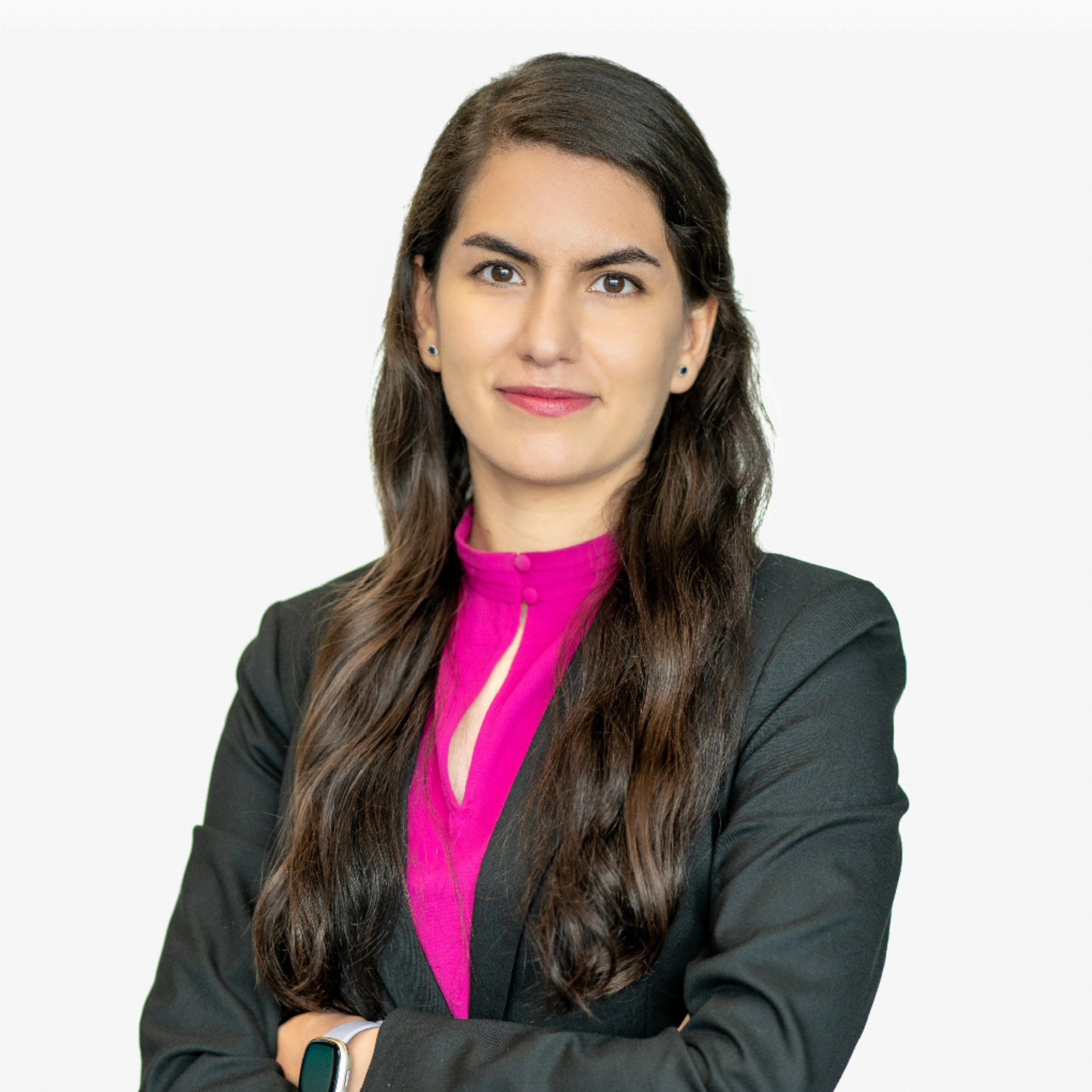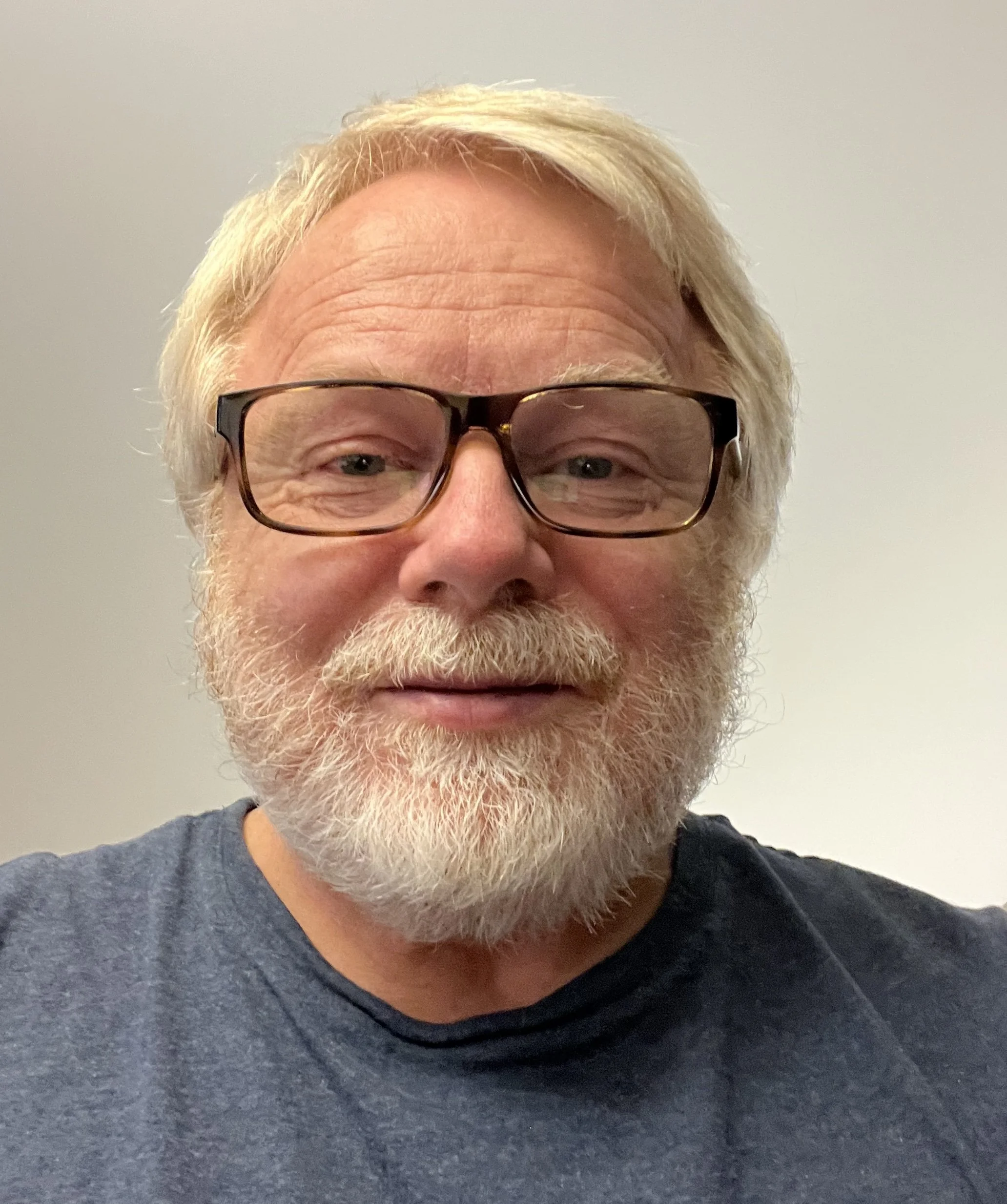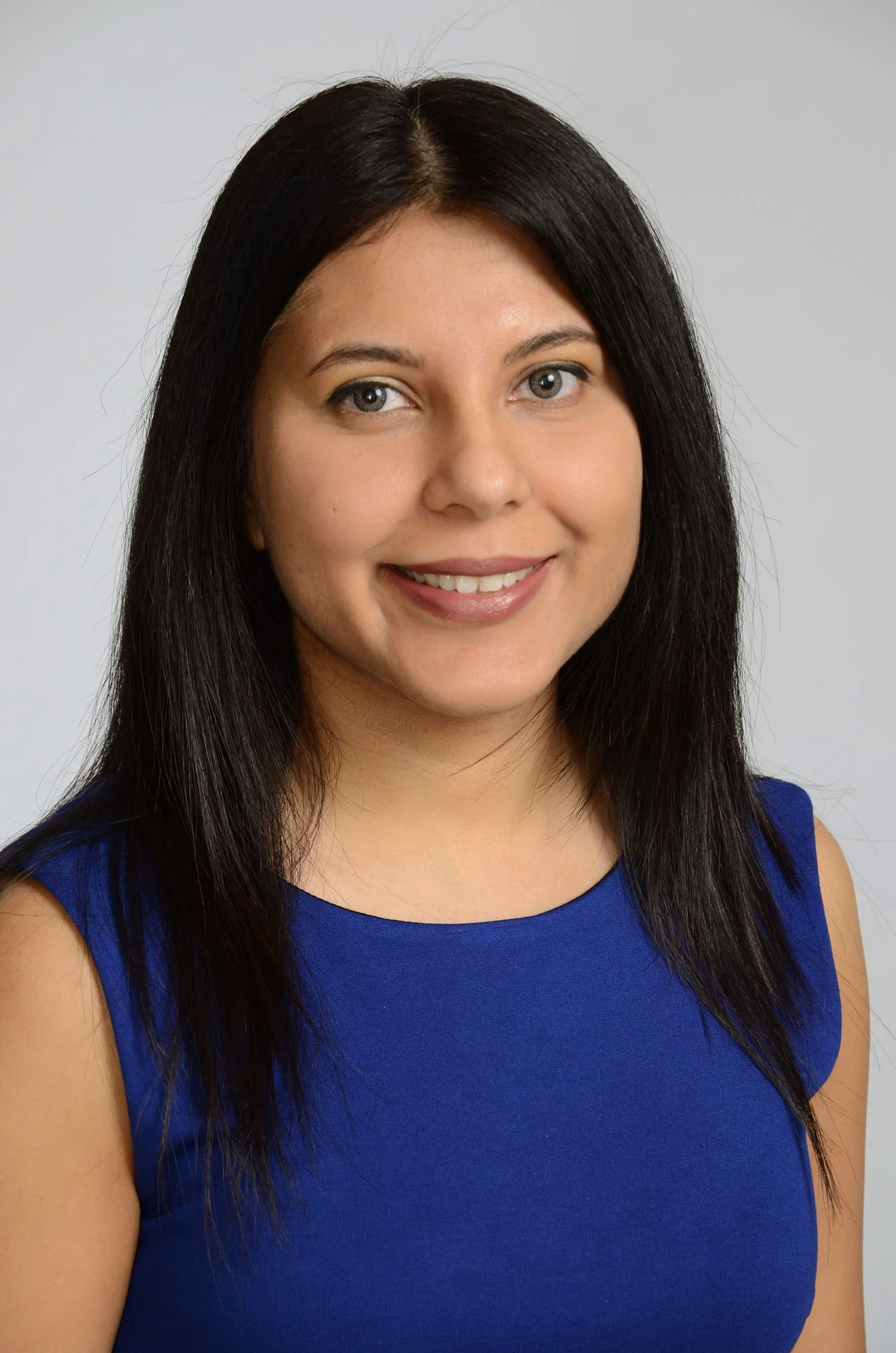Lunch with Mentors
This event is typically held in-person at the annual OHBM conference where we invite 10 - 20 mentors along with a group of 6 - 12 mentees (per mentor) to share lunch (provided courtesy of the Student Postdoc SIG), tips, and tricks on navigating all aspects of an academic career. This event is very popular so make sure to sign up for a chance to attend!
Typical Schedule
May:
Expressions of Interest (EOIs) for mentees to attend the Lunch with Mentors programme open for two weeks. As we receive typically twice as many EOIs than available mentee positions, we have an EOI process which does not guarantee a spot in Lunch with Mentors, but aims to ensure equitable opportunity to access this event.
EOIs close, lottery takes place (managed by the OHBM SP SIG), and invitations to RSVP for Lunch with Mentors are sent out.
June:
Mentors are announced and bios are published on the OHBM SP SIG website.
Lunch with Mentors takes place during the annual OHBM conference
OHBM 2025 Brisbane
Mentors
Juan Helen Zhao
Yong Loo Lin School of Medicine, National University of Singapore (NUS)
Dr. Juan Helen ZHOU is an Associate Professor at the Centre for Sleep and Cognition and Director of the Centre for Translational MR Research at the Yong Loo Lin School of Medicine, National University of Singapore. Her research focuses on selective brain network-based vulnerability in aging and neuropsychiatric disorders, leveraging multimodal neuroimaging and machine learning approaches. Helen has served as a Council Member and Program Committee member of the Organization for Human Brain Mapping. She is on the advisory board of Cell Reports Medicine and serves as an editor for eLife, Human Brain Mapping, and the Journal of Alzheimer’s Disease.
Mac Shine
The Brain and Mind Center at the University of Sydney, Australia.
Mac is a systems neurobiologist working to understand the mechanisms of cognition and attention using functional brain imaging, both in health and disease. He has a particular interest in understanding how the different arms of the ascending arousal system flexibly modulate the cross-scale organisation of the brain to facilitate adaptive behaviour. He is currently working as a joint NHMRC/Bellberry fellow at The University of Sydney.
Nicola Palomero-Gallagher
Institute of Neuroscience and Medicine (INM-1), Research Centre Jülich
C & O Vogt Institute for Brain Research, Heinrich Heine University Düsseldorf
Nicola Palomero-Gallagher obtained her Master’s degree in Biology from the Sciences Faculty of the Universidad Autónoma of Madrid, Spain and a PhD in Neuroscience from the Heinrich-Heine University Düsseldorf, Germany. She is a Senior Researcher and Leader of the "Receptors" research group at the Institute of Neuroscience and Medicine (INM-1), Research Centre Jülich, Germany, as well as an Associate Professor and lecturer at the C. & O. Vogt-Brain Research Institute of Düsseldorf University, Germany. She also serves as a senior editor of Brain Structure and Function.
Vicente Medel
Lead Investigator (BrainLat - UAI) · Universidad Adolfo Ibáñez
Dr. Vicente Medel is a neuroscientist, with background in philosophy specializing in systems neurobiology, neurometabolism, and brain imaging. His research integrates MRI, electrophysiology, and computational modeling to investigate how brainstem neuromodulatory systems and astrocyte function shape cognition, aging, and brain health. He is currently an Assistant Professor at the Latin American Brain Health Institute (BrainLat) of the Universidad Adolfo Ibáñez, and leads interdisciplinary projects linking basic neuroscience with clinical applications.
Forough Habibollahi
Cortical Labs Pty Ltd
Forough is a postdoctoral applied scientist at Cortical Labs Pty Ltd. She began her academic journey in electrical engineering (BSc, Sharif University of Technology) and later completed research training at SUTD-MIT (Singapore) and EPFL (Switzerland), before earning her PhD in Biomedical Engineering from the University of Melbourne. Her research focuses on learning and intelligence in living neurons embedded in simulated environments. She works at the intersection of computational neuroscience and AI, with interests in brain criticality, NeuroAI, and deep learning. She co-chaired the NeuroAI Workshop at NeurIPS2024—the most attended of the conference—and collaborates closely with the Turner Institute for Brain and Mental Health at Monash University.
Ruchika Prakash
Center for Cognitive and Behavioral Brain Imaging. Ohio State University, USA.
Dr. Prakash is a Distinguished Professor of Psychology at The Ohio State University, where she also serves as the Director of the Center for Cognitive and Behavioral Brain Imaging. Her research focuses on evaluating mind-body interventions to improve cognitive and emotional health in older adults and those with neurological conditions, using neuroimaging and neuropsychological methods. She has published 94 peer-reviewed articles in prestigious journals like Proceedings of the National Academy of Sciences, Psychology and Aging, and NeuroImage. Her achievements have been recognized with several awards: the “Rising Star Designation” from the Association for Psychological Science in 2013, the Springer Early Career Achievement in Research on Adult Development and Aging from the American Psychological Association in 2016, and the Diversity and Inclusivity Champion Award from the Organization for Human Brain Mapping in 2023.
Lucina Uddin
University of California Los Angeles
After receiving a Ph.D. in cognitive neuroscience from the Psychology Department at the University of California Los Angeles, Dr. Uddin completed a postdoctoral fellowship in the Child Study Center at New York University. For several years she worked as a faculty member in Psychiatry & Behavioral Science at Stanford University. She recently returned to UCLA where she directs the Brain Connectivity and Cognition Laboratory and the Center for Cognitive Neuroscience Analysis Core in the Semel Institute for Neuroscience and Human Behavior. Dr. Uddin’s research combines functional and structural neuroimaging to examine the organization of large-scale brain networks supporting the development of social cognition and executive function.
Nathan Spreng
McGill University
Nathan Spreng is a James McGill Professor of Neurology and Neurosurgery at McGill University and Director of the Laboratory of Brain and Cognition at the Montreal Neurological Institute, where he is also Group Leader of the Cognitive Neuroscience Unit. His research examines large-scale brain network dynamics and their role in complex cognition across the lifespan in health and disease. He is also actively involved in the development and implementation of multivariate and network-based statistical approaches to assess brain structure and function. Dr. Spreng has published over 150 peer-reviewed articles and 10 book chapters in the fields of psychology and neuroscience.
Roch Comeau
Rogue Research Inc.
During his Ph.D. in Biomedical Engineering at the Montreal Neurological Institute, Roch participated in many collaborative projects where neuronavigation could contribute to the advancement of the science including neurosurgery and non-invasive brain stimulation. Rogue Research was later formed to supply neuronavigation tools to new TMS labs around the world and expanded into translational research with specializesdneurosurgical tools and navigation. 25 years later, Rogue Research counts over 1500 labs worldwide using the Brainsight neuronavigator and has had the privilege of collaborating with some of the next neuroscientists in the world.
Daniel Margulies
Cognitive Neuroanatomy Lab
Daniel S. Margulies received a doctorate for his research on applications of resting-state functional connectivity to the study of neuroanatomy, for which he received the Otto Hahn Medal in 2010. From 2011-2017 he was the group leader of the Max Planck Research Group: Neuroanatomy & Connectivity in Leipzig. More recently, he is a researcher director at CNRS and leads the Cognitive Neuroanatomy Lab. His research focuses on investigating spatial organizational principles of the cerebral cortex and its role in human cognition.
To stay informed, please follow us on our social media (BlueSky: https://bsky.app/profile/ohbmtrainees.bsky.social Twitter/X:https://twitter.com/OHBM_Trainees), where we will announce the opening of sign-ups and any other updates!
Past Lunch with Mentors
We would like to sincerely thank all the past mentors who have generously given up their time to participate in our event!
2024 - OHBM Seoul: List of mentors
Selma Lugtmeijer
James Pang
Nicola Palermo-Gallagher
Eduardo Garza-Villarreal
Wani (Choong-Wan) Woo
Seong-Gi Kim
Emily S. Finn
Andrew Zalesky
James Cole
Alex Fornito
Nils Muhlert
Xujun Duan
Hyang Woon Lee
Hiromasa Takemura
Nathan Spreng
2023 - OHBM Montréal: List of Mentors
Dr Alex Fornito
Dr Chandan Vaidya
Dr Charlotte Stagg
Dr Eduardo Garza-Villarreal
Dr Emily Jacobs
Dr Helen Zhou
Dr Jessica Damoiseaux
Dr Mallar Chakravarty
Dr Marc Seal
Dr Nathan Spreng
Dr Randy Gollub
Dr Sofie Valk
Dr Stephanie Forkel
Dr Takafumi Minamimoto
Dr Valentina Pacella
Dr Xujun Duan
2022 - OHBM Glasgow: List of Mentors
Dr Andrew Zalesky
Dr Aina Puce
Dr Robert Zatorre
Dr Natasha Rajah
Dr Lucina Uddin
Dr Jessica Damoiseaux
Dr Christian Windischberger
Dr Michael Chee
Dr Daniele Marinazzo
Dr Anastasia Yendiki
Dr Helen Zhou
Dr Victor Ekuta
2021 - OHBM Online - Link with Mentors
Dr Alex Fornito
Dr Amy Kuceyeski
Dr Anqi Qiu
Dr Danielle Bassett
Dr Chris Gorgolewski
Dr Charlotte Stagg
Dr Helen Zhou
Dr Janis Reinelt
Dr Johan van der Meer
Dr Lucina Uddin
Dr Mac Shine
Dr Marta Garrido
Dr Michel Thiebaut de Schotten
Dr Pierre Bellec
Dr Svenja Caspers
2020 - OHBM Online - Link with Mentors
Dr Alex Fornito
Dr Amy Kuceyeski
Dr Deanna Barch
Dr Erin Barker
Dr Lara Boyd
Dr Lucina Uddin
Dr Michael Breakspear
Dr Patrick Britz
Dr Ted Satterthwaite
Dr Terry Jernigan
Dr Thomas Yeo
Dr Todd Constable
Dr Xavier Castellanos
Alex Fornito
Monash Clinical and Imaging Neuroscience, Monash University.
Alex completed his PhD at The University of Melbourne before undertaking Post-Doctoral training at the University of Cambridge, UK. He is currently a Laureate Fellow of the Australian Research Council, Professor in the School of Psychological Sciences, and Head of the Brain Mapping and Modelling Research Program and Neural Systems and Behaviour Lab at the School of Psychological Sciences, Monash University.
Alex’s research focuses on understanding foundational principles of brain organization and their genetic basis, characterizing brain disturbances in psychiatric disorders, and understanding how individual variability in brain structure and function relate to behaviour.
Wani (Choong-Wan) Woo
Sungkyunkwan University/ Insitute for Basic Science
Choong-Wan (Wani) Woo is the director of the Computational Cognitive Affective Neuroscience lab (Cocoan lab). His research focuses on understanding how the human brain represents, processes, and regulates pain and emotions using fMRI, machine learning, and computational models. He received his dual PhD in the Department of Psychology and Neuroscience and the Institute of Cognitive Sciences from the University of Colorado Boulder, an MA in Clinical Psychology, and a BS in Biology from Seoul National University. Currently, he is an associate director of the IBS Center for Neuroscience Imaging Research and an associate professor in Biomedical Engineering at Sungkyunkwan University.
Joana Cabral
Life and Health Sciences Research Institute, Minho University.
Dr. Joana Cabral completed her PhD in Spain and postdoctoral work at Oxford, UK before making the decision to return to Portugal to be close to family and friends—despite facing an unstable position, long commuting, and a lower salary. For over a decade, she has successfully balanced raising 3 children while working remotely, building an international research career from her home office. The ability to integrate her professional ambitions with meaningful family life has proven invaluable. Her journey shows that geographic choices need not limit academic impact, and she is excited to begin a tenure-track position later this year in Lisbon, the city she proudly calls home, marking a new chapter in her commitment to work-life-family-friends balance.
Xujun Duan
University of Electronic Science and Technology of China
She received her PhD in Biomedical Engineering at the University of Electronic Science and Technology of China under the supervision of Dr. Huafu Chen, and conducted a Joint PhD study at Stanford University under the supervision of Dr. Vinod Menon. Her long-term research goal is to address how brain anatomy, function and connectivity are altered in autism spectrum, and how they vary across the population, by using multi-modal brain imaging techniques and computational methods.
Over the past decade, she has dedicated to delineate a comprehensive and consistent mapping of the different structure and function of the autistic brain, and reaches a consensus that the social brain are the most affected regions in the autistic brain at different levels and modalities. She further proposed a personalized functional-connectivity guided brain stimulation strategy targeting the social brain to improve social deficits of severe autism. She is the PI of 5 research projects funded by the National Natural Science Foundation of China, and awarded the first prize of the Science and Technology Progress Awards of Sichuan Province, China. She was one of the Keynote speakers of the 2023 Annual Meeting of the Organization for Human Brain Mapping (OHBM).
Her findings have been published in influential journals including PNAS, Biological Psychiatry, Schizophrenia Bulletin, Cerebral Cortex and Human Brain Mapping.
Tonya Jo Hanson White
National Institute of Mental Health
Tonya White, MD, PhD heads the Section of Social and Cognitive Development Neuroscience within the Intramural Program at the National Institute of Mental Health. She has an eclectic educational background, having received Bachelor’s (Magna Cum Laude) and master’s degrees in electrical engineering prior to completing medical school at the University of Illinois (James Scholar) and later obtaining a Ph.D. from the Erasmus University. She completed a Triple Board residency (Peds/Psych/Child Psych) training at the University of Utah and a postdoctoral research fellowship at the University of Iowa under the mentorship of Dr. Nancy Andreasen. Following her postdoctoral research fellowship, Dr. White was a junior faculty member at the University of Minnesota for eight years. She joined the faculty at Erasmus University Medical Centre in 2009 to set up and direct the neuroimaging program within the Generation R study, which is a large population-based study of child development. She left her position as Professor of Pediatric Population Neuroimaging two years ago to join the NIH. Her primary research focus lies in understanding the underlying neurobiology of neurodevelopmental disorders, including the intersection between developmental neuroscience and epidemiology. Dr. White has published nearly 300 peer-reviewed journal articles, 32 book chapters and editorials, and one children’s book.
AmanPreet Badhwar
CRUIGM, University of Montreal
Dr. AmanPreet Badhwar is an Associate Professor at the University of Montreal, Faculty of Medicine, Department of Pharmacology and Physiology and the Institute of Biomedical Engineering; a researcher at the Centre de recherche de l'Institut universitaire de gériatrie de Montréal. She co-leads multiple national and international initiatives, namely: (a) the Canadian Institutes of Health Research funded Vascular Training Platform (VAST), which focuses on vascular cognitive impairment research and innovation, (b) the Imaging Platform of the Canadian Consortium on Neurodegeneration in Aging (CCNA), the premier hub for Alzheimer’s disease and dementia research in Canada, and a global leader in research on all aspects of neurodegenerative diseases, and (c) the Blood Based Biomarker Extracellular Vesicle Working group of the Alzheimer's Association International Society to Advance Alzheimer's Research and Treatment (ISTAART). She also served as the 2023-2024 Council Secretary of the Organization for Human Brain Mapping, and is currently Chair (2025-2026) of the OHBM Women Faculty Special Interest Group.
Dr. Badhwar’s academic path has been to study neurological disease by combining different data types, starting with small-scale genetics and brain imaging early in her career, and progressively moving to “big-data-analytics” in Alzheimer’s disease. Dr. Badhwar directs the Multiomics Investigation of Neurodegenerative Diseases (MIND) Lab that focuses on integrating observations from in-vivo brain imaging and biofluid-based molecular ‘omics’ in the study of age-related dementias, with the goal of discovering new biomarkers and therapeutic targets, and improving methods to speed the drug discovery process. Dr. Badhwar holds several grants and has been awarded multiple prestigious scholarships/awards over the years, including the FRQS-Chercheur-boursiers-Junior 2 and the 2022 Organization for Human Brain Mapping Diversity and Inclusion Champion Award.
Sharna Jamadar
Cognitive Neuroimaging Lab - Turner Institute for Brain and Mental Health & Monash Biomedical Imaging
Sharna Jamadar is Associate Professor (Research) and NHMRC Emerging Leader Fellow at the Turner Institute for Brain and Mental Health & Monash Biomedical Imaging.Sharna leads the Cognitive Neuroimaging Lab. Her research is focused on understanding how our life experiences change our brains, and how this may confer resilience to the ageing process. She is particularly interested in developing and applying novel imaging methods to study brain connectivity and its change across the lifespan. In addition, Sharna also has an emerging interest in the neuroscience of parenthood, and her team has proposed the new hypothesis that parenthood contributes to cognitive reserve and resilience to the ageing process.

















